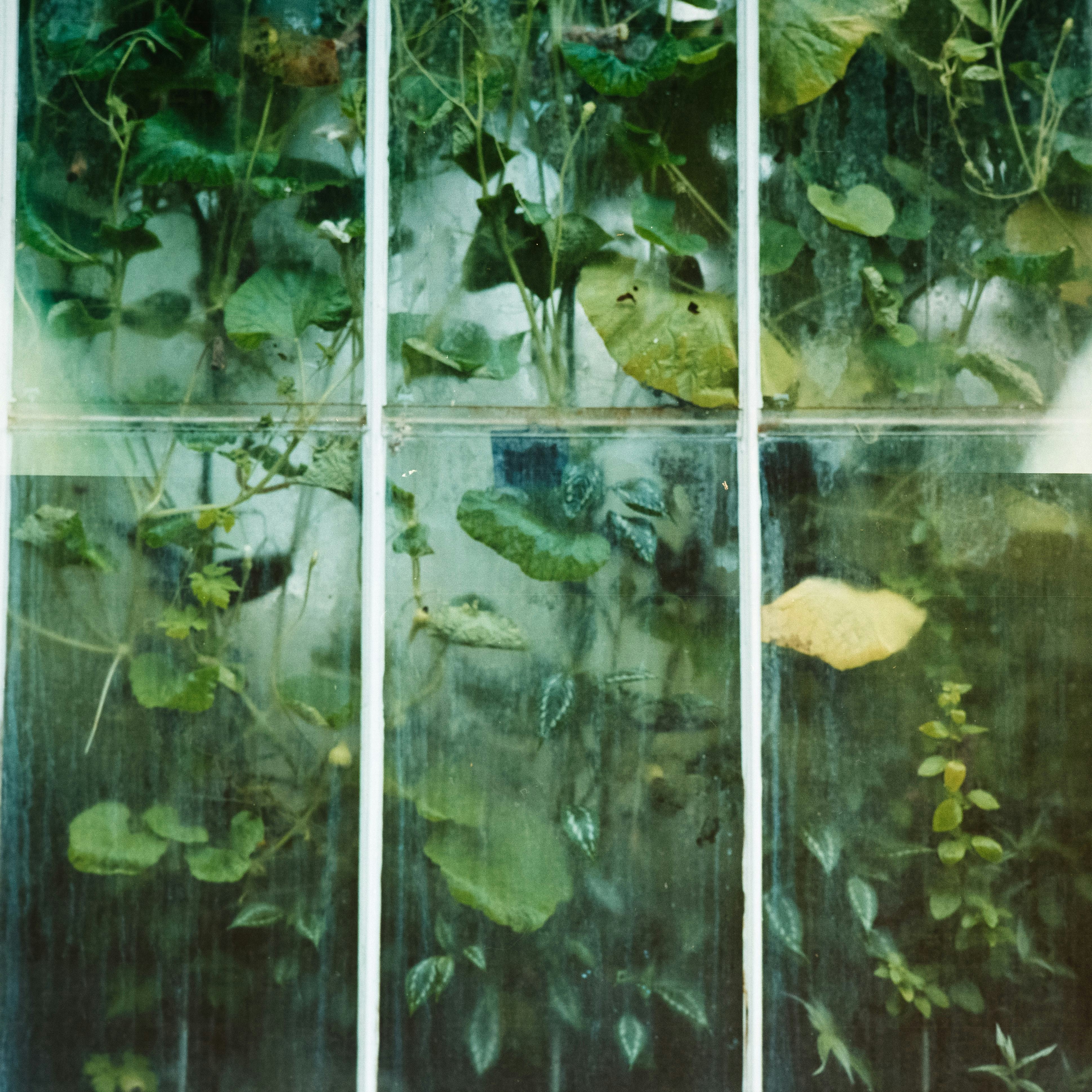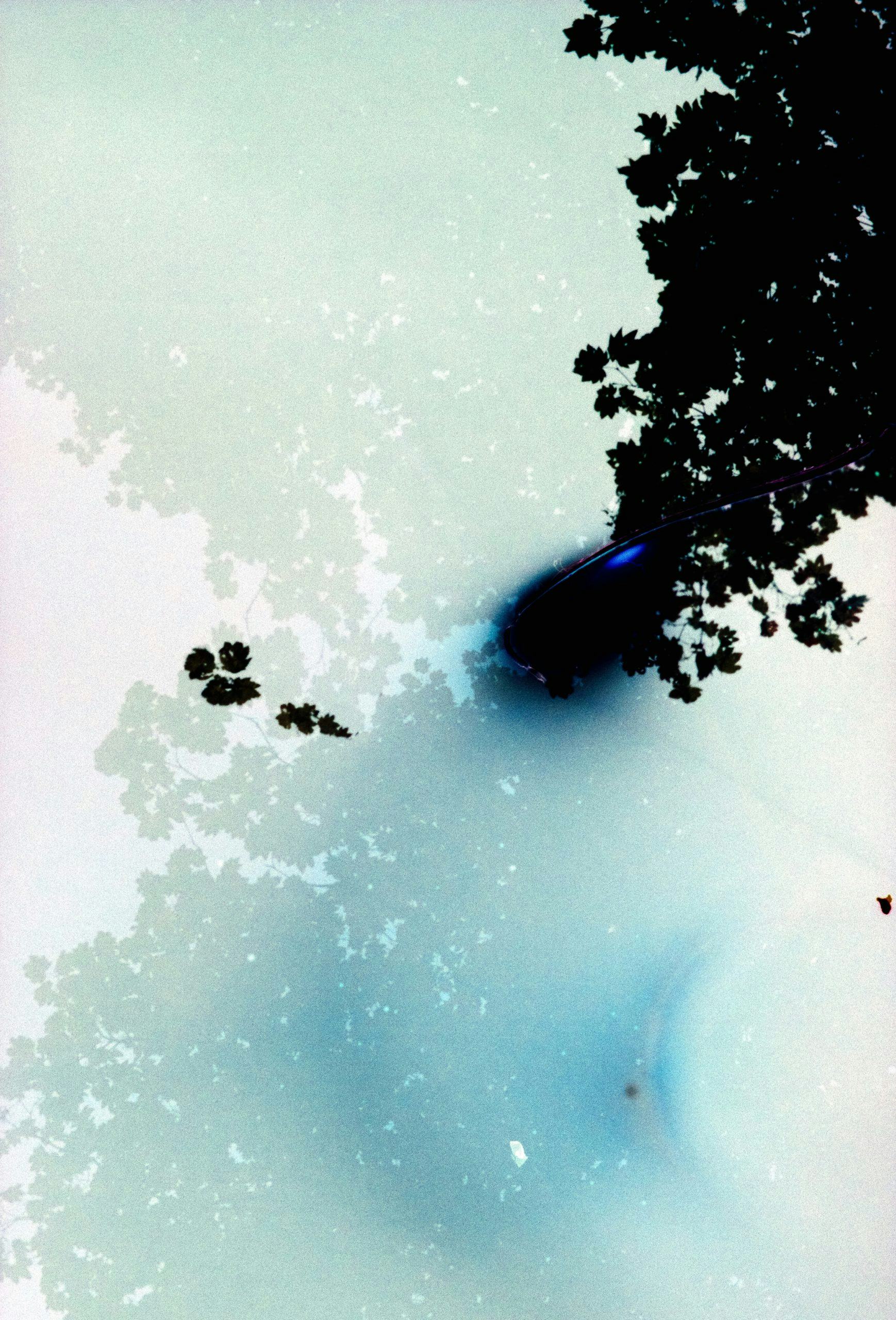I am listening to Eckhart Tolle on a stale bus filled with 50 Greenwich moms, seated next to a boyfriend I love but do not like, on a dark gray January morning headed to the Women’s March on Washington. It is 2016. I am embarrassed by the corniness of the self-help language, and by the need my inhalation of these words might expose, the hungry longing for someone to tell me how to live. I keep the volume turned down and my phone tucked in my pocket. But the words work on me. This is the first description of God that doesn’t make me twitch or pull away. I find in it a gentle space around my thoughts, a soft blue horizon to ease into, like removing your fingers from a toy finger trap, relaxing toward instead of against.
For as long as I can remember, doubt has played a central role in my life.
*
Cut to a new scene: again, I’m in motion, fluorescently lit in a window seat on the 3 train, cradling leftovers in my lap. I’ve just learned that a close family friend is terminally ill, and my inner monologue is fragmented, chaotic, loud, and self-pitying. I am looking at the man across from me, studying his ordinary features. Suddenly, electrically, I am shocked with tenderness for each stranger on the train, filled with an ice-clear awareness that they, like me, will lose everyone and everything they love in this life. I am showered with a sense of our concreteness, our animal-ness. For ten minutes, I am rocked by my realization, after which the feeling begins to fade. Still, it leaves a hint in the hours and days to follow, a crumb of the possibility that perception can unlock and reveal something startling. Even now, words fail me when I try to explain what happened on the train that day.
*
There is a Zen Koan that says: what is your original face, from before you were born? I sit with this question sometimes, puzzling over it, analyzing it in the way I’m not supposed to but cannot help doing with Koans. If I have an original face, does it include both my decisions and my doubt?
*
There is another version of this Koan: show me your original face from before even your mother was born. I like how this version acknowledges mothers, how even their thorny grip cannot obscure the original face.
*
Although she would not want this to be the case, so many of my decisions have been shaped by the decisions of my mother, and inevitably, her mother. My mother decided to become a therapist in the footsteps of my grandmother, a housewife at 18, turned away from multiple colleges for being too old when she decided to go back to school at 40. She eventually made it to social work school, which propelled her into a career as a famed family therapist—multiple books, interviews, lectures in front of large audiences, travel.
*
Having immigrated at seven to the Bronx from what was, at the time, Transylvania, my grandmother’s success was made sweeter by the fact that she grew up poor, sharing a coat with her sister in the winter, teased in school for her thick Hungarian accent. My mother made her career in the shadow of her mother’s success.
*
In divinity school, I learn to refer to various religions as “traditions.” “Religion” itself is a term weighed down by the legacy of colonialism, laden with the history of a Western insistence on categorization. Alternatively, tradition is a long carpet reaching back. The carpet of my Judaism is worn, sparse, patchy in places.
*
Growing up, I could clearly sense my family’s disdain for organized religion, which shaped my sense of the Jewish tradition. Judaism was not available to me in any tangible way—it was something far off, remote, something that other people did. Perhaps this contempt originated in my grandmother’s teenage struggle against her own mother who, with her long white braids and thick Hungarian accent, was still rooted in that old world of rules and restrictions. Or maybe it was the perennial ghost of the Holocaust that instilled in us a distrust of religion, a distrust of God, really, as it did for so many in the Jewish diaspora.
*
Family lore has it that my great-grandmother renounced Judaism before she died, standing up in the synagogue and proclaiming herself, theatrically, to be “done with God” after her macular degeneration made it impossible for her to read the words of the Torah. Is choice a kind of seeing?
*
I used to love picking up my mom at her book-lined office in the evenings. I loved that room, the possibility of it. Is a choice a room? Leather couch, red rug, worry stones and books on depression, self-doubt, marriage, and mothers.
*
In the tradition of the Bhagavad Gita, doubt is sometimes described as “a thought that touches both sides of a dilemma at the same time.” In my daily life I am split down the middle by choice. Even the smallest of choices makes my hands sweat—peanut butter: chunky or smooth? Graded or Pass/Fail? Send the text or wait for their message? I have planted my folding chair smack in the middle of any two roads diverging.
*
I call it translation, the way I have to replace each “Lord,” in the Shabbat liturgy with another, more palatable metaphor, the mental acrobatics I do to wedge myself into this tradition that was not explicitly handed down to me. This attitude still lurks around the corner, swinging up at some point every Friday night. Rabbi Liza often seems, clairvoyantly, to sense its presence as soon as it enters the room. She says, “even if you don’t believe in God, you still know what I’m talking about on some level,” which calms my analytical spinning. I relax enough to feel her words into my chest.
*
In my first semester of divinity school I take a Talmud course and study in havruta, a traditional rabbinic approach to text study involving reading closely in dialogue with a partner, engaging in conversation to uncover the deeper meanings of the text. This method of reading creates a triadic relationship between you, a text, and another person. The Rabbi once told me: “Torah is havruta with God.” I often imagine what it would be to study in havruta with my grandmother. As I read her old poems and letters and study her handwriting in the margins of her books, it’s as if we are in a conversation at a great distance.
*
It was only after my grandmother died that I began to question the utility, the possibility, of therapy. Somehow I was angry at therapy. It didn’t do what I wanted it to—which was what? It did claim an antidote to many of the things my grandmother suffered in her final years—depression, addiction, the sticky residue of ancestral trauma. But it never promised to ward off death.
*
Maybe I chose divinity school because I hoped it would go beyond therapy. I wanted to see people not as collections of neuroses, but in the way I saw them that day on the train. They were comparable to trees—all vastly different, gnarled, imperfect, fully themselves. Unanalyzable. Breathtakingly beautiful, without a doubt.
*
Maybe a choice is a series of halls we traverse with eyes closed. Maybe a choice is a funhouse mirror, showing the self, captured and distorted. Maybe a choice is a shape-shifter, like water, unable to be held in hands. On my grandmother’s last day, she asked me to go to the store and buy her either rice pudding or a milky-way bar. I brought back both.
Molly Silverstein is a Jewish poet, grad student, and person. She currently studies at Harvard Divinity School, where her work focuses on comparative mysticism, contemporary spiritual care, and the psychology of religion. Her writing has been previously published in Maudlin House, Sheila Na Gig, and Five 2 One Magazine, and she has performed with the Juniper Bends reading series. Winter is her favorite season.
Discover more from Molly Silverstein.









